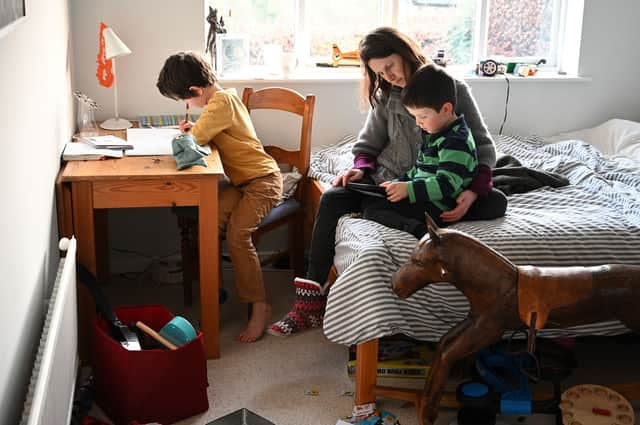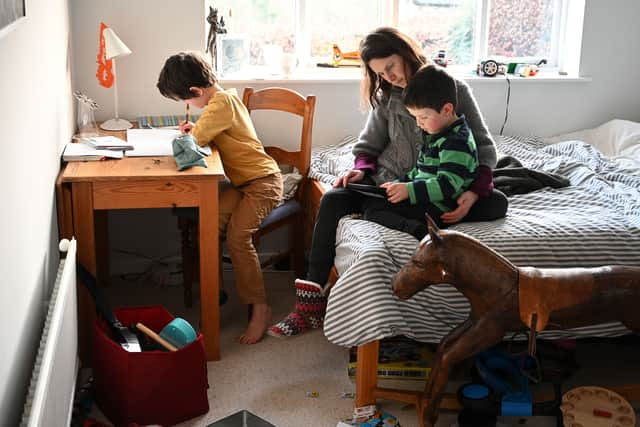Cost of living: Warning to parents that Child Benefit could be stopped or reduced for these reasons


Parents claiming Child Benefit payments are being warned their benefit could be stopped or reduced for several reasons. Around seven million people claim Child Benefit, which sees parents paid £24 a week for their first child and £15.90 per week for any additional children.
The monthly cash boost is the Government’s way of acknowledging the extra costs involved with raising a child. A study by Moneyfarm revealed it can cost anywhere from £160,000 to £190,000 to raise a child to age 18 in the UK.
Advertisement
Hide AdAdvertisement
Hide AdHowever, there are rules when claiming Child Benefit and sometimes parents are caught out. This could cause your payments to stop.
Here is a list of reasons why Child Benefit can be stopped or reduced.
Reasons Child Benefit payments can be stopped or reduced
You or your partner start earning more than £50,000
If you or your partner start earning more than £50,000, you will start paying the High Income Child Benefit Charge (HICBC) so you will need to pay back some of the money you get. You have to pay back 1 per cent of the Child Benefit you receive for every £100 earned above £50,000.
The rules mean you and your partner can both earn up to £50,000 - so £100,000 annually - before having to pay anything back. However, if one of you earns more than £60,000 , then you cannot claim any Child Benefit.
Advertisement
Hide AdAdvertisement
Hide AdIf your partner is earning over £60,000 but you are not working or earning less than £113 a week, then you will still be able to claim.
You did not update your details on time
Your payments will automatically stop on August 31 the year your child turns 16 if you claim Child Benefit. But if your child is going to remain in full time education, full time training or they are joining the armed forces or a government-sponsored careers programme, then you can continue claiming the money until they turn 20.
You will need to take steps to notify HMRC about this and if you don’t, your payment will be stopped. If your child stays in education or training but then decides to leave, you will continue to get Child Benefit until whichever date after their birthday comes first:
- The last day in February
- May 31
- August 31
- November 30
You may still be able to claim Child Benefit if you fail to update your details in time, but your payments might be late.


Your living arrangements have changed
Advertisement
Hide AdAdvertisement
Hide AdYour Child Benefit would be affected if you move as long as the child still lives with you. However, it will if you move abroad.
You can only claim Child Benefit for the first eight weeks you are not in the UK, or 12 weeks if you are having medical treatment. But you must still live in the UK and you must not be abroad for more than a year.
You separate or divorce from your partner
Only one person can claim Child Benefit for a child and, usually, it is the person the child lives with. If you want the other person to claim, then you will need to request this from HMRC.
You have to tell HMRC about separations and divorces as it could affect your taxes and the benefits you claim.
